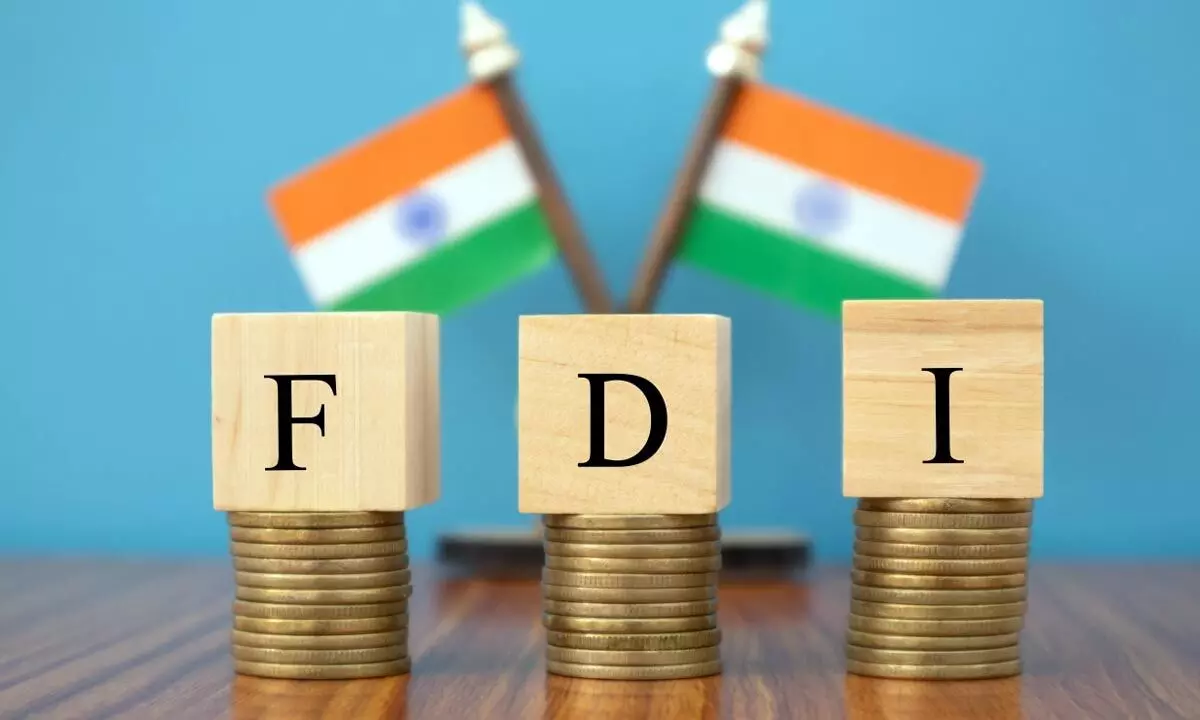NCAER for making India FDI destination
National Council of Applied Economic Research prepares a note on measures to be taken in Budget-2023 to attract FDI, maintain macroeconomic stability, fiscal prudence
image for illustrative purpose

Global growth affects India in two ways—a slowdown in global demand has a direct bearing on Indian exports and second one is that a pessimistic global investment sentiment has a proportional impact on domestic sentiment
New Delhi: Budget 2023-24 should retain focus on growth with macroeconomic stability and fiscal prudence, complemented by efforts to attract higher foreign direct investment (FDI) and more globally competitive and integrated production capabilities, says a recent paper by the top think-tank, National Council of Applied Economic Research (NCAER).
Authored by NCAER director-general Poonam Gupta and Research Associate Ayesha Ahmed, it says, "the global environment seems to have turned less hostile as inflation rates have peaked in advanced economies and oil prices have stabilized at lower levels. So, capital flows have started returning to India, the exchange rate is bouncing back and foreign reserves are being rebuilt."
Gupta is also a member of the Prime Minister's Economic Advisory Council (EAC).
Now is the time to build resilience to capital account volatility and put in place policy frameworks to mitigate the impact of oil price shocks and tame vegetable price inflation, the paper says. "Within the mix of the international capital that we attract, FDI is the most stable form of capital, and portfolio flows are the most volatile. To reduce capital account volatility, it will be advisable to change the mix of capital inflows towards more stable forms of capital, particularly FDI."
Calling monetary policy a blunt instrument to address the issue of food inflation, especially vegetable price inflation, the NCAER paper recommends better demand-supply management. "It will be a win-win for all: it will stabilize farmer incomes, liberate monetary policy from responding to food inflation and provide a useful political narrative."
Global growth affects India in two ways, it says. The first is through demand for India's exports. A slowdown in global demand has a direct bearing on Indian exports. Second, a pessimistic global investment sentiment has a proportional impact on domestic sentiment.
Budget 2023 should be prepared assuming a modest level of nominal growth; and it should keep provision to support specific sectors that would likely be impacted by the repercussions of a global slowdown.
Overall, while we should hope for the best, we should be prepared to tackle another difficult year, the NCAER paper says.

